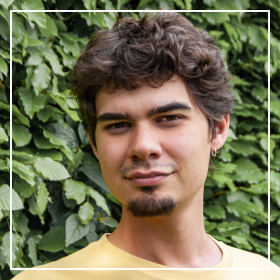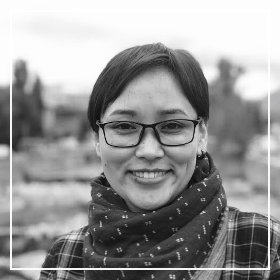What better place could there be to think about the interconnections between service, duty and care than the Venetian Palazzo Vendramin dei Carmini? The palazzo is a 17th century building tied to the merchant family Vendramin. The family was deeply involved with Venice’s confraternities, or Christian voluntary associations, through which they contributed to charities and funded the arts in the city. Historically, the palazzo also represents the socio-political hierarchies that emerged from endeavours of care, and from the duties, debts and obligations which such service entails. Today the palazzo houses Ca’ Foscari University of Venice’s Department of Asian and North African Studies where in June 2023 we, a dozen anthropologists and historians, gathered to debate the possibilities of connecting service, duty and care on a conceptual level. In the process, we moved between keynote talks by seasoned researchers, presentations of impressive ongoing doctoral research and plenty of time for open discussions in the palazzo, over meals, coffee and on long walks through Venice.
Over the past years, literature on the anthropology of care – from medical to political anthropology – has rapidly grown (e.g., Amrith 2017; Feldman and Ticktin 2014; Gagné 2018; Gelsthorpe, Mody and Sloan 2020; Govindrajan 2018). As Megha Amrith emphasized in her keynote in Venice, the concept has gained expansive as well as “polysemic” qualities (Buch 2015). Existing work has focused on multiple dimensions of care, including affect, ethics, economy, (state) control and global inequalities. This has enabled a critical reassessment of dichotomies such as autonomy and dependence, warm and cold, sentimental and instrumental, private and public, caring and careless. Furthermore, questions around “moral deservingness”, or who deserves care and who does not, and who actually cares and delivers care work have received critical attention. In her own research, which focusses on medical and domestic workers from the Philippines, Amrith observes conflicting modes of care. While her interlocutors occasionally do refer to the ethical underpinnings of their care as rooted in Catholicism or medical professionalism, personal aspirations and care for one’s own future stand at the forefront. Transnational care work is thereby bound up with personal forms of care towards homeland and kin left behind. Not infrequently, this involves contradictory emotions that emerge from social settings in which duty and obligation pull and tug at the neoliberal promise of individual progress.
Duty is a concept “hidden in plain sight” and, though used ubiquitously in anthropology, remains undertheorized.
Duty, as Philip Fountain argued in his keynote talk, is deeply interconnected with various forms of care. It is also linked to moral formations that imply qualities of “family resemblance”, such as obligation, solidarity, compulsion and demand. Nevertheless, duty is a concept “hidden in plain sight” and, though used ubiquitously in anthropology, remains undertheorized. Fountain noted that studies on humanitarianism and giving are particularly useful examples of how duty lies at the core of many ethnographies and yet is often left out of social, historical and genealogical investigations (e.g., Fassin 2012; Malkki 2015; Mittermaier 2019). Drawing on his longstanding research on Mennonite development institutions in transnational perspective, Fountain called for more attention to duty as a means of reinserting the notion of “debt” into our thinking about care. The transnational mobility of Mennonites from Russia to the United States and Canada in the context of the Volga famine in the 1920s is a striking example of how debt can inform the duty to care. Owing their lives to assistance from overseas, the Mennonites who escaped the famine accumulated a Reiseschuld (travel debt) that had to be repaid far beyond financial obligations. Engaging in service for Mennonite development organizations, these survivors and their descendants – all conscientious objectors on religious grounds – had to navigate debt towards the Mennonite institutions as well as expectations of the US and Canadian states.
Against this backdrop, it becomes clear that service, duty and care – once opened up conceptually – begin to bleed into each other. A thorough genealogical embedding into concrete ethnographic and historical settings is thus essential to theorize them in relation to each other, as Fabio Vicini argued in his keynote on service. The Gülen movement on which some of Vicini’s research focusses is a case in point that provides insights into how Islamic service emerging from Sufi hierarchies (khadimat al-shaykh) has been reappropriated by projects of modernity. In the Gülen movement, which developed in Turkey and expanded rapidly and transnationally (before getting banned in Turkey after the 2016 coup attempt), service is envisaged as care on different, expanding scales: towards “brothers” within the movement, broader strands of society, the Islamic ummah and humanity at large. Economic ideologies play a crucial role in this transcendental notion of service, as Vicini also illustrated using the example of Deniz Feneri, an Islamic-inspired charity organization active in Turkey since the 1990s. However, what can be observed here, Vicini noted, is not necessarily a neoliberalization of Islam, but a “reinjection of the civilisational impetus of Islam” into neoliberal environments.

Processes of economic change and their embedding in larger historical contexts were core themes in the discussions throughout the workshop. In their presentations on vernacular aid organizations in Serbia’s Sandžak region (Pol Llopart i Olivella) and hospitality towards Ukrainian refugees in Lithuania (Beatrice Juskaite) both speakers put obligations to care in relation to the emptying out of landscape. As a result of post-Cold War economic transformation and the end of socialist economies, “emptiness” and “aging” have become crucial attributes in rural regions (see also Dzenovska 2020). People’s reactions to this change vary but often include ideas on how to re-populate the frontier. In the Sandžak, for instance, this is expressed through the notion of a duty to preserve and foster Muslim presence and belonging in the region. In his talk on techno-enthusiasm amongst Colombian teachers, Juan Forero Duarte shed light on a different mode of economic change. Entwining neoliberal aspiration of “serving the self” with Catholic-inspired ethics of care, these teachers navigate transcendence, New Public Management and notions of biographical debt towards their students. The temporality of debt also appeared in Gulzhan Begeyeva’s paper on Turkish traders in Kazakhstan. In this case, the historical origins of Turks in Central Asia shape their charitable practices based on feelings of indebtedness and kinship, which are, in turn, wedded to Islamically-driven service to God and humanity.
In addition to the mentioned examples, most talks and discussions touched upon the theme of “religion”. While religion stands in interaction with other forms of sociality, the ethics and communal interrelations brought forth by different religious traditions featured as central for an understanding of care, duty and service. Federica Cicci’s presentation on women’s involvement in the Chinese Red Cross in the 1930s and 40s was an example for how a seemingly nationally-oriented organization drew on a much longer history of missionary and philanthropic engagement in China. Megha Amrith, in her talk on care, mentioned how Catholic repertoires of sacrifice continue to play a role for medical workers from the Philippines even though economic considerations, wages and working conditions often take precedence. However, when it came to the forms of care that these workers expressed towards each other Catholicism trumped economic paradigms.
A focus on duty, service and kin in state contexts could also foster a renewed engagement with the literature on street level bureaucrats.
Economy and religion are of course only two of a plethora of themes that workshop participants discussed in relation to service, duty and care. Many presenters – and discussants – also referred to the centrality of kinship and relatedness for thinking these concepts together. For instance, in Juskaite’s presentation, Lithuanians hosted Ukrainian refugees at their homes and interpreted this encounter through memories of past suffering, shared history and cultural relatedness. Moreover, in his response to the panel on duty, Philip Fountain mentioned several aspects that have so far remained neglected in anthropological research on humanitarianism. In particular, he highlighted the moral and political intersections between “neoliberal altruism”, state welfare, and kin-based solidarities. A focus on duty, service and kin in state contexts could also foster a renewed engagement with the literature on street level bureaucrats (Zacka 2017). Kathryn Allan’s presentation on elected female members of parliament who had to flee Afghanistan after the return of the Taliban in 2021 is a case in point. Forming a parliament in exile in Greece they continue to serve the constitution of a past state. At the same time, they are enmeshed in relations of hospitality in Athens and at the forefront of gendered civic engagement in Afghan diasporic settings. Allan’s work, along with the keynotes and panel presentations mentioned above, provoke a number of central questions that have arisen from two days of intensive discussion in Venice. To what extent can the focus on service and duty help us think about care in nuanced and differentiated ways? What are the roles of guilt, debt, disappointment, shame and humiliation in this constellation? And what can the ethnographic grounding and specificity of service and duty teach us about the generative, but also vastly expansive concept of care?
References
Amrith, Megha. 2017. Caring for Strangers: Filipino Medical Workers in Asia. Copenhagen: NIAS Press.
Buch, Elana D. 2015. “Anthropology of Aging and Care”. Annual Review of Anthropology 44, 277-293.
Dzenovska, Dace. 2020. “Emptiness: Capitalism without people in the Latvian countryside”. American Ethnologist 47(1), 10-26.
Fassin, Didier. 2012. Humanitarian Reason: A Moral History of the Present. Berkeley: University of California Press.
Feldman, Ilana and Miriam Ticktin. 2013. In the Name of Humanity: The Government of Threat and Care. Durham: Duke University Press.
Gelsthorpe, Loraine, Perveez Mody and Brian Sloan. 2020. Spaces of Care. Oxford: Hart Publishing.
Gagné, Karine. 2018. Caring for Glaciers: Land, Animals, and Humanity in the Himalayas. Seattle: University of Washington Press.
Govindrajan, Radhika 2018. Animal Intimacies: Interspecies Relatedness in India’s Central Himalayas. Chicago: The University of Chicago Press.
Malkki, Liisa H. 2015. The Need to Help: The Domestic Arts of International Humanitarianism. Durham: Duke University Press.
Mittermaier, Amira. 2019. Giving to God: Islamic Charity in Revolutionary Times. Berkeley: University of California Press.
Zacka, Bernardo. 2017. When the State Meets the Street: Public Service and Moral Agency. Cambridge: Harvard University Press.
Featured picture by Matteo Angeloni, courtesy of Pexels.








